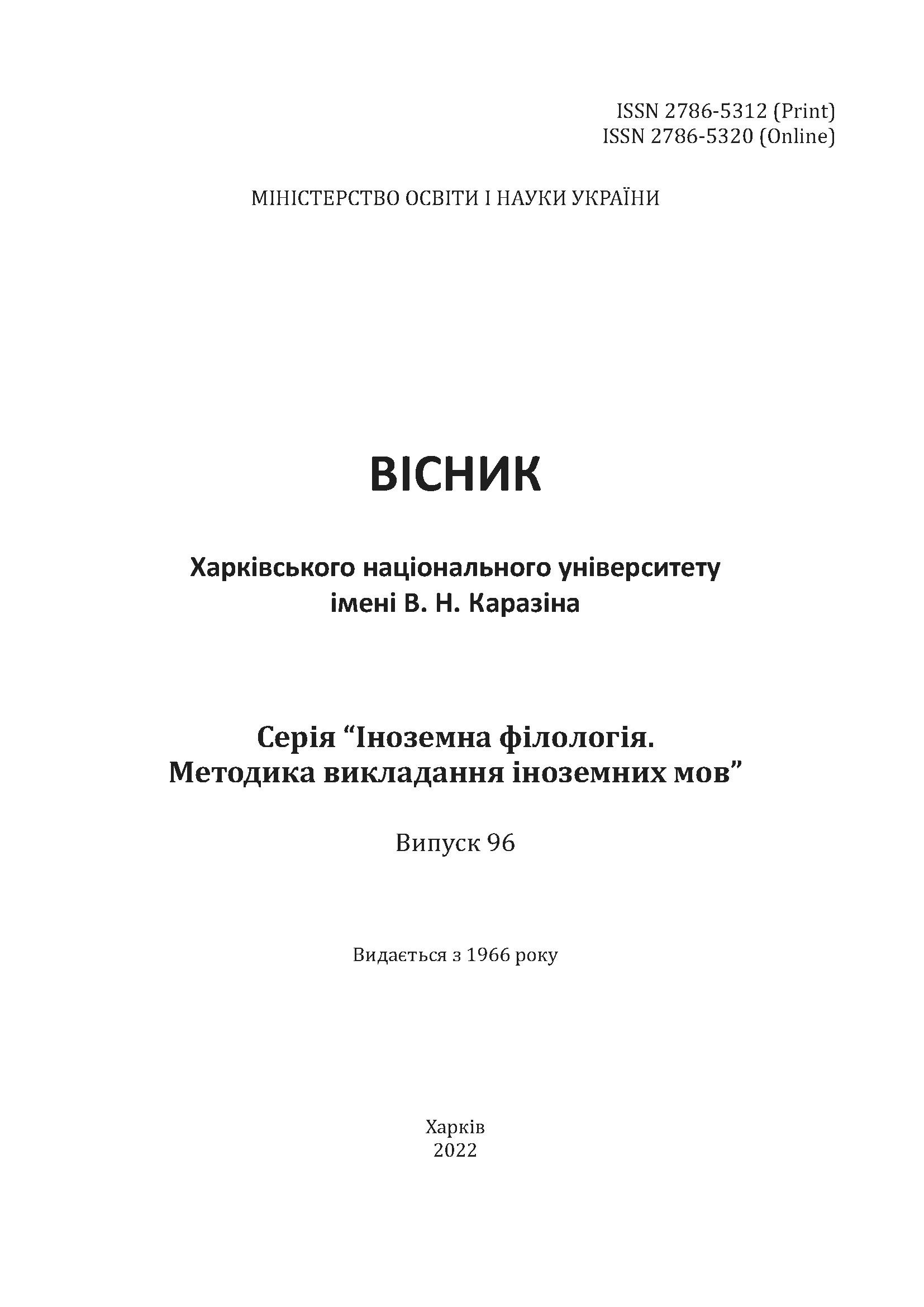Experimental study of the impact of using machine translation engines on the quality of translation of texts in the field of Jungian psychology
Abstract
The article is devoted to the study of the impact of using machine translation engines (Microsoft Translator and DeepL Translate) on the quality of translation of texts in the field of Jungian psychology. The translation quality was determined by the number of errors and quality of rendering psychological terminology. The modern translation market offers many online engines designed to help with the translation of psychological texts, which gradually get more recognition, but it’s important to define the most efficient machine translation engine that can be recommended for working with the texts in the field of Jungian psychology. In the course of conducting our research, we formulated a research hypothesis, selected a psychological text rich in psychological terminology, compiled a bilingual glossary based on the selected text, selected machine translation engines and the procedure of evaluating errors, analyzed translated texts in terms of general quality and in terms of transferring psychological terminology, processed the experimental data and represented the results in the form of tables providing an expert assessment of the empirical data and formulated conclusions. In the process of conducting the experiment, the second hypothesis was confirmed: the quality of conveying the content and basic psychological terminology in the translation of the text in the field of Jungian psychology turned out to be higher when using the DeepL Translate machine translation engine, and therefore it is this machine translation engine that we can recommend for the use by professional translators working with texts in the field of Jungian psychology. However, when using this online translator, one needs to be aware of the inaccuracies, literalism tendency and stylistic errors that the machine makes.
Downloads
References
Olkhovska A. S. (2017). Eksperymentalna perevirka efektyvnosti navchannia maibutnikh perekladachiv pysmovoho perekladu iz zastosuvanniam informatsiino-komunikatsiinykh tekhnolohii. [Experimental testing of the effectiveness of teaching translation to students with the use of information and communication technologies]. Visnyk KNLU. Seriia Pedahohika ta psykholohiia. Vypusk 27. P. 98–107 (in Ukrainian).
Chernovatyy L. M. (2013). Metodyka vykladannya perekladu. [Methods of teaching translation]. Vinnytsya : Nova Knyha (in Ukrainian).
Chernovatyi L. M. (2009). Problema otsiniuvannia pysmovykh robit maibutnikh perekladachiv. [The problem of assessing translations produced by future translators]. Visnyk Kharkivskoho natsionalnoho universytetu imeni V. N. Karazina. Seriia: Romano-hermanska filolohiia. Metodyka vykladannia inozemnykh mov. Vyp. 848. P. 257–262 (in Ukrainian).
Newmark P. A. (1988). Textbook of Translation. New York/London : Prentice Hall. P. 152–154.
Olkhovska A. S. (2017). Testing Efficiency of the Methodology of Teaching Students Majoring in Philology to Translate Texts Using CAT-tools: A Pilot Study. Advanced Education. Vol. 7. P. 37–44.
Roesler C. (2020). Jungian theory of dreaming and contemporary dream research — Findings from the research project ‘Structural Dream Analysis’. The Journal of Analytical Psychology. № 65(1). P. 44–62. DOI: https://doi.org/10.1111/1468-5922.12566.
Shabanipoor M., Moinzadeh. A. (2013). A Study of Translation Strategies Used in Translation of Specialized Terms of Psychology from English into Persian. International Research Journal of English Language Teaching and Literature Studies. Vol. 1(2). P. 1–5.




